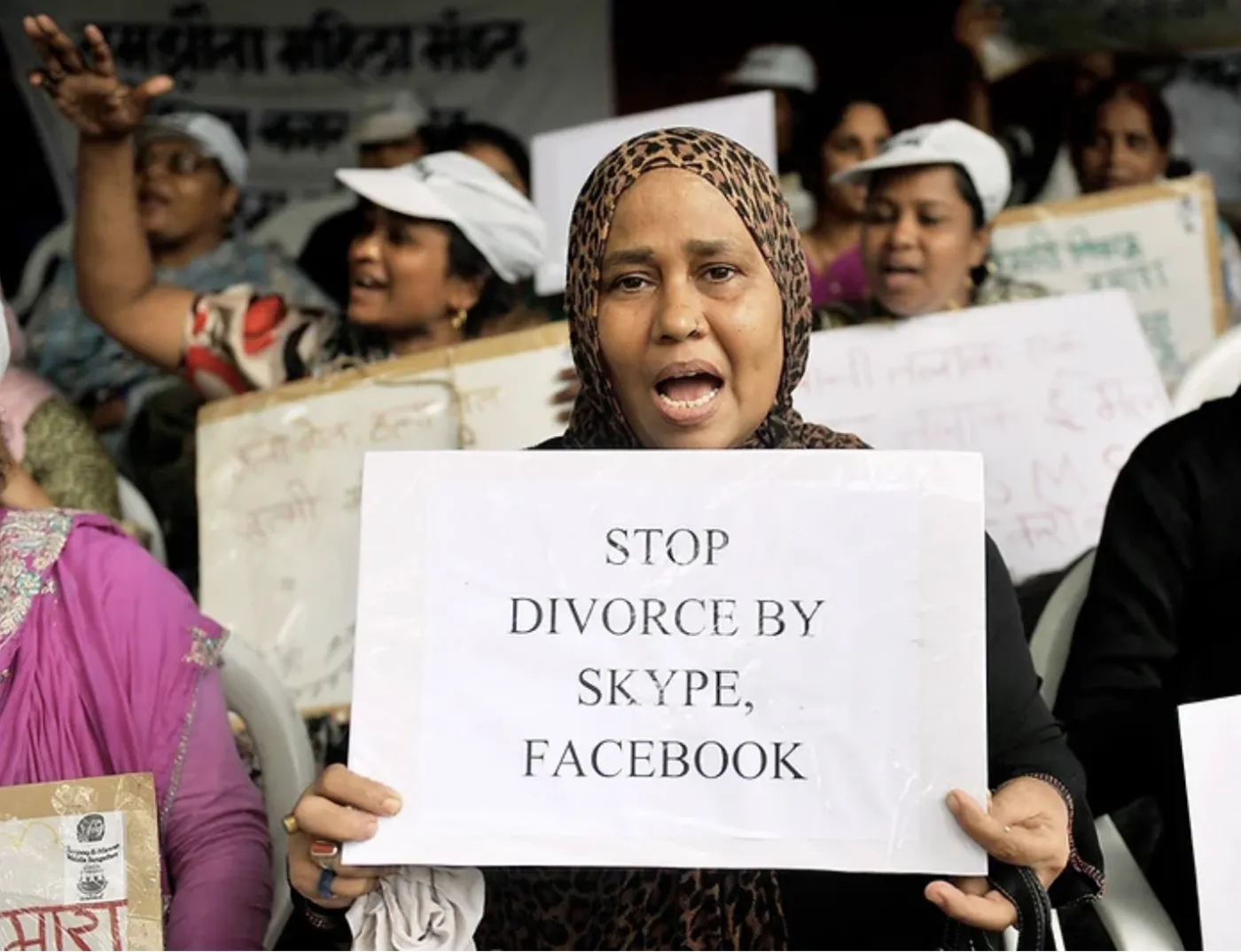Shayara Bano is breathing a sigh of relief following the recent enactment of a law banning polygamy in her small state in India. This milestone represents the culmination of years of effort, including her own landmark lawsuit against the practice, which she brought before the Supreme Court of India.
Bano, a Muslim woman whose husband took a second wife and divorced her by uttering “talaq” three times, stated, “Now I can say that the battle against the longstanding Islamic rules regarding marriage and divorce has been won.”
She told, “The practice of allowing men to have multiple wives under Islamic law must come to an end.”
However, Sadaf Jafar, another Muslim woman, does not support the new law that abolishes practices like polygamy and instant divorce, despite her own legal struggle against her husband for marrying another woman without her consent.
Jafar, who is seeking alimony to support their two children, commented, “Polygamy is permitted in Islam under strict rules and regulations, but it is often abused.” Jafar expressed her disappointment that she had not consulted Islamic scholars, hoping instead that the Indian courts would deliver justice.
The passage of the Uniform Civil Code in Uttarakhand has highlighted a deep divide among women in the country’s largest religious minority community, even among those whose lives have been disrupted by their husbands’ multiple marriages.
Some, like the activist Bano, 49, praise the new provisions as an overdue affirmation of secular laws over the parallel Sharia laws governing marriage, divorce, inheritance, adoption, and succession. For others, including Jafar and various Muslim leaders and scholars, the law represents an unwelcome political maneuver by Prime Minister Narendra Modi’s Hindu nationalist party.
The legislation in Uttarakhand is anticipated to pave the way for other states governed by Modi’s Bharatiya Janata Party (BJP) to follow suit, despite fierce opposition from some leaders of India’s 200 million Muslims, who make India the world’s third-largest Muslim-majority nation.

Rights in a Multi-Religious Society
BJP leaders argue that the new law is a significant reform, rooted in India’s 1950 Constitution, aimed at modernizing the country’s personal Muslim laws and ensuring complete equality for women.
A 2013 survey revealed that 91.7% of Muslim women nationwide believe that Muslim men should not be allowed to marry additional wives once married to the first. However, many Muslims accuse Modi’s party of pursuing a Hindu nationalist agenda that discriminates against them and imposes laws that interfere with Islamic practices.
Sharia law permits Muslim men to have up to four wives and does not have strict regulations prohibiting child marriage. Jafar, who has run for office in the Indian National Congress, views the passage of the law as a tactic by the Modi government to malign Islam and distract from pressing issues like improving the livelihoods of Muslims.
In 2017, the Supreme Court ruled that instant divorce in Islam was unconstitutional, but this ruling did not address polygamy or other practices criticized for violating women’s rights.
In addition to banning polygamy, the new law sets a minimum marriage age for both genders and ensures equal inheritance of ancestral property for adopted children, children born out of wedlock, and children conceived through surrogacy.
Yet, some Muslim politicians argue that this law infringes upon the fundamental right to practice religion. The All India Muslim Personal Law Board has labeled the legislation as impractical and a direct threat to India’s multi-religious society.
Officials from the All India Muslim Personal Law Board assert that the government has no authority to question Sharia. Sharia is a comprehensive legal system and set of guidelines for daily life for Muslims, based on the Quran and the teachings of Prophet Muhammad.